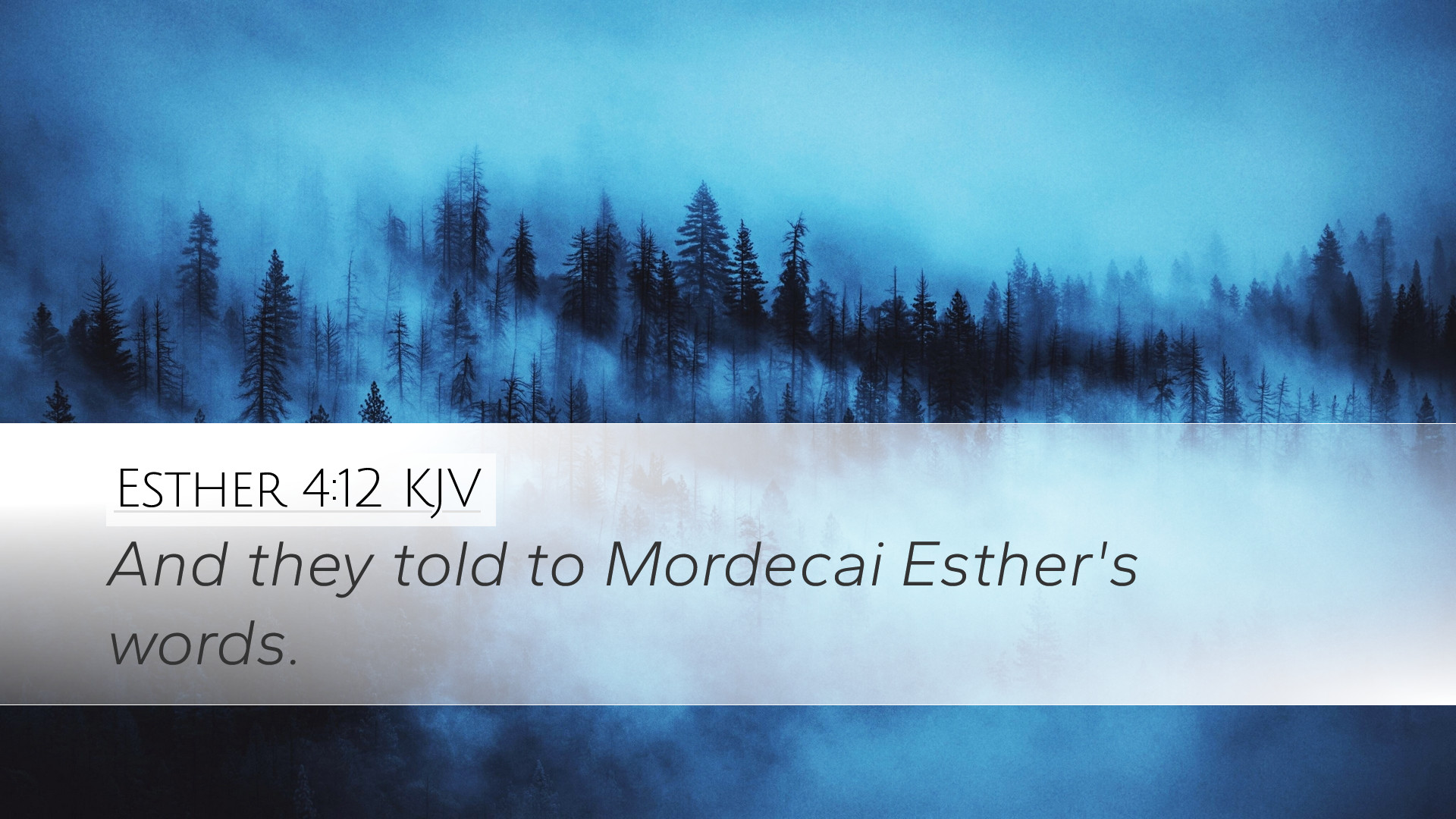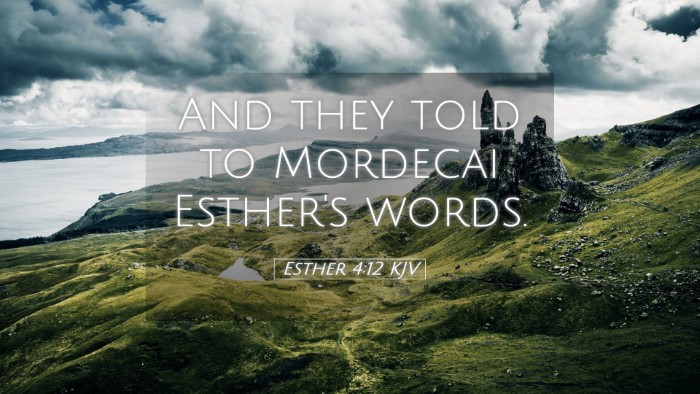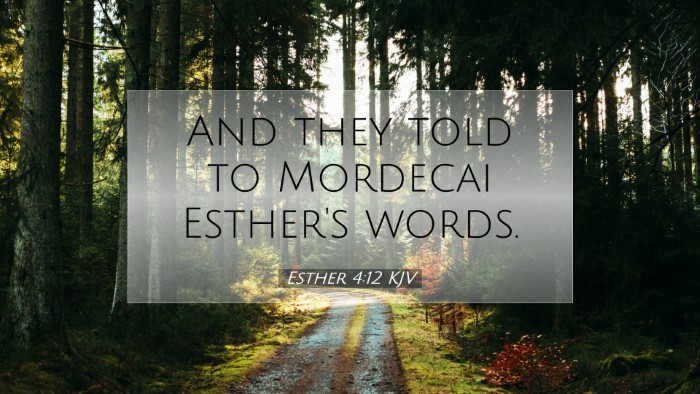Old Testament
Genesis Exodus Leviticus Numbers Deuteronomy Joshua Judges Ruth 1 Samuel 2 Samuel 1 Kings 2 Kings 1 Chronicles 2 Chronicles Ezra Nehemiah Esther Job Psalms Proverbs Ecclesiastes Song of Solomon Isaiah Jeremiah Lamentations Ezekiel Daniel Hosea Joel Amos Obadiah Jonah Micah Nahum Habakkuk Zephaniah Haggai Zechariah MalachiEsther 4:12
Esther 4:12 KJV
And they told to Mordecai Esther's words.
Esther 4:12 Bible Commentary
Bible Commentary on Esther 4:12
Verse: "And they told Mordecai Esther's words." (Esther 4:12)
Contextual Background
This verse occurs at a crucial moment in the narrative of Esther, where Esther is faced with the daunting idea of approaching the King of Persia without being summoned. This was a perilous act that could lead to her death. Mordecai, her cousin and guardian, urges her to speak on behalf of her people. The communication of Esther's response to Mordecai is pivotal in understanding her internal struggle and the broader implications of her actions.
Commentary Insights
The commentaries by Matthew Henry, Albert Barnes, and Adam Clarke provide profound insights into this verse, addressing both its immediate implications and its larger theological significance.
-
Matthew Henry's Perspective:
Henry emphasizes the crucial nature of the communication between Esther and Mordecai. He points out the trust that Mordecai has in Esther's position within the palace. This verse marks a turning point where Esther must acknowledge her responsibility and the potential for her to influence the fate of her people. Henry illustrates the importance of divine providence and highlights that Esther's courage can be interpreted as an act of faith.
-
Albert Barnes' Exegesis:
Barnes notes the significance of the transmission of information in this verse. He indicates that the process of communication reflects deeper theological themes of unity and purpose within the Jewish community. He discusses the contrast of Esther's royal position and her fears, interpreting her hesitance as a natural human response to danger. Barnes encourages readers to recognize that our fears can sometimes serve as barriers to fulfilling God's purposes.
-
Adam Clarke's Analysis:
Clarke offers a detailed analysis of Esther's predicament. He points out the gravity of the situation, as Esther is in a position of privilege yet faces the same peril as her fellow Jews. He observes that Mordecai's message serves as a reminder that silence in the face of oppression is not an option. Clarke emphasizes the idea that God uses individuals in specific circumstances, urging the reader to consider the call to action in their own lives when faced with injustice.
Theological Themes
The theological implications of Esther 4:12 are far-reaching. Scholars identify several key themes that emerge from this verse:
- The Sovereignty of God: This passage reflects God's overarching control over historical events. Mordecai’s assertion that Esther may have been placed in her position “for such a time as this” (Esther 4:14) invites contemplation on divine purpose.
- Courage and Responsibility: Esther's situation serves as a powerful example of moral courage in the face of danger. Pastors and theologians are often encouraged to reflect on how they might act when called to address injustice.
- Unity Among God’s People: The interaction demonstrates the importance of community and mutual support among the Jews. Their collective identity and shared struggles are vital elements in understanding their response to persecution.
- Faith in Action: Esther’s decision to approach the king is an embodiment of faith that must manifest in action. This resonates with the contemporary call for Christians to live out their faith in tangible ways.
Conclusion
Esther 4:12, though a brief verse, encapsulates pivotal themes of faith, courage, and divine purpose. By integrating insights from esteemed commentators such as Matthew Henry, Albert Barnes, and Adam Clarke, we are encouraged to reflect on our responses to difficult circumstances and our roles in upholding justice for others. This passage serves as a call to action for modern believers, challenging them to recognize their potential impact in the world and the necessity of stepping forward in faith.


